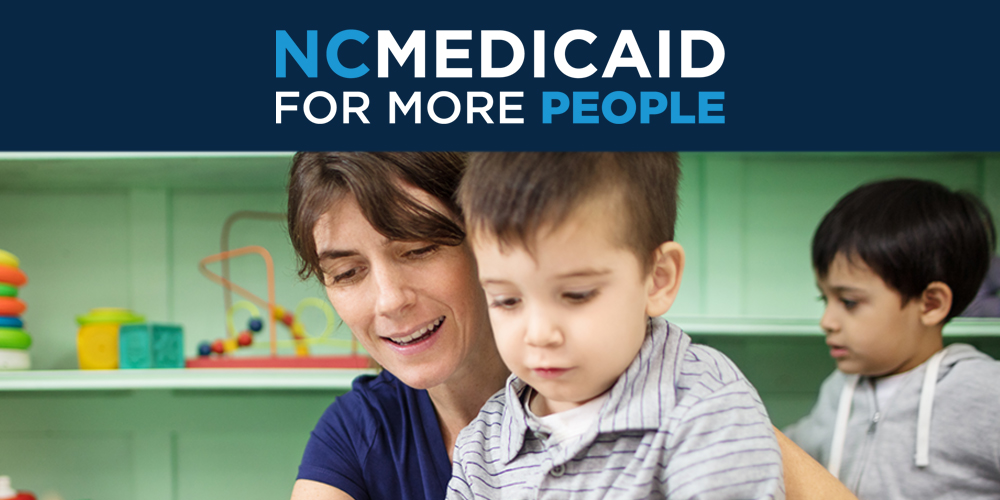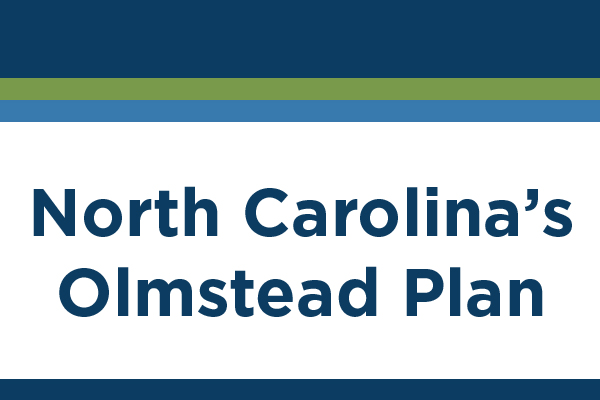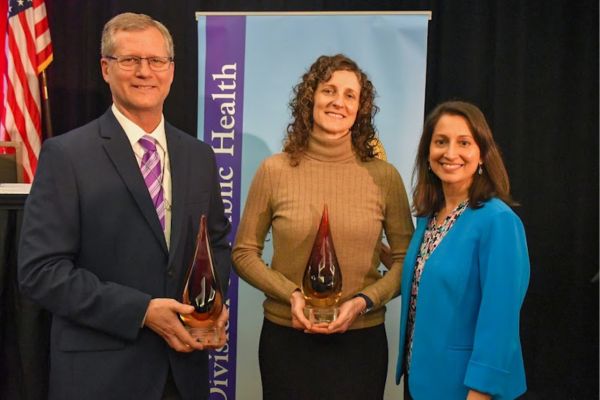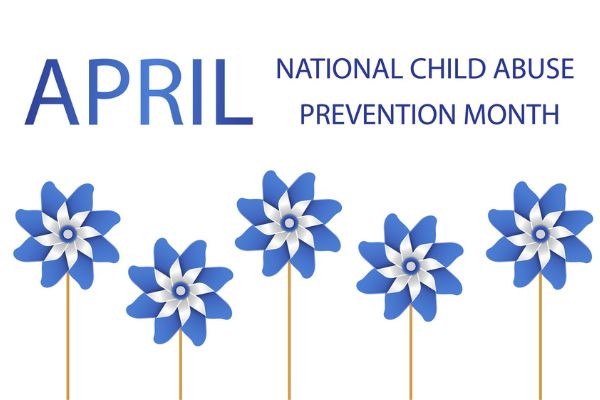|
|
|
|
 |
This week, Governor Cooper announced that more than 400,000 North Carolinians now have access to health care through the state’s Medicaid expansion, following record enrollment numbers and a coordinated campaign to enroll North Carolinians across the state.
This number represents more than two-thirds of the 600,000 people North Carolina expects to enroll over the next two years. Since Dec. 1, North Carolina has enrolled an average of more than 1,000 people per day in Medicaid expansion – a pace faster than other states that have expanded Medicaid.
For the more than 400,000 new enrollees, Medicaid has already provided more than 705,000 prescriptions for things like heart health, diabetes and other illnesses, and covered more than $11.2 million in claims for dental services since the Dec. 1 launch.
The NCDHHS Medicaid Expansion website includes information on eligibility, FAQs, how to apply and a sign-up form to receive the latest news and updates. To learn more or apply for NC Medicaid, visit Medicaid.nc.gov.
|
|
 |
NCDHHS is reporting a statewide increase in mpox cases with 45 cases reported in 12 counties across North Carolina in the past six months.
The national mpox outbreak began in late May 2022 and peaked from July to August 2022. A total of 703 cases were reported in North Carolina that year, and only nine cases occurred in 2023.
The mpox virus is primarily spread by prolonged close contact, typically skin-to-skin, that occurs during sexual activity. It is the associated rash, scabs or body fluid that contains the virus. Although anyone can become infected with mpox, cases have predominantly occurred among gay, bisexual or other men who have sex with men.
Vaccines are currently free and available throughout North Carolina, regardless of immigration status. The two-dose JYNNEOS vaccine series is recommended for anyone at risk for mpox and aged 18 years and older, which includes the following:
- Anyone who has or may have multiple or anonymous sex partners; or
- Anyone whose sex partners are eligible per the criterion above; or
- People who know or suspect they have been exposed to mpox in the last 14 days; or
- Anyone else who considers themselves to be at risk for mpox through sex or other intimate contact.
The mpox vaccine locator can be used to find local vaccine providers.
More information about the virus, how to limit the risk of infection, and how to get vaccinated can be found on the North Carolina Mpox and CDC Mpox websites. |
|
|
|
 |
Olmstead Plan Improves Community Inclusion for People with Disabilities
This week, NCDHHS released the 2024-25 Olmstead Plan to help ensure people with disabilities have the resources they need to live and thrive in the communities of their choice. In alignment with the U.S. Supreme Court’s imperative for community integration in the Olmstead v. L.C. decision, the goal is to divert people with disabilities from entering institutions and support those wishing to leave by offering a full array of community-based living services. The 2024-25 Olmstead Plan was developed in collaboration with the Olmstead Plan Stakeholder Advisory Group, represented by people with lived experience and family members of people with disabilities. Since 2023, NCDHHS has increased opportunities for people with behavioral health needs, intellectual and developmental disabilities (I/DD) and traumatic brain injury by launching the Inclusion Works initiative, to advance the right to work by promoting competitive integrated employment and fair pay for people with I/DD, and launching the Inclusion Connects website, a centralized resource to help people with I/DD find and get connected to community-based services in their area. Read more about all of the NCDHHS initiatives as part of the Olmstead Plan to better support independence, integration and self-determination for people with disabilities. |
|
 |
Fight the Bite As Warmer Weather Arrives
As warmer weather approaches, NCDHHS urges North Carolinians to “Fight the Bite” by reducing their risk of tick- and mosquito-borne diseases. In 2023, almost 900 cases of tick- and mosquito-borne illnesses were reported across the state. To reduce tick exposure, use DEET repellent, check yourself and your children after leaving wooded, grassy or brushy areas and reduce tick habitats with selective landscaping techniques. To reduce mosquito exposure, use DEET repellent, empty standing water from flower pots and buckets outside and check your travel destination to identify appropriate prevention methods. The "Fight the Bite" campaign increases awareness about the dangers of vector-borne diseases and educates residents about measures to protect themselves. Students K-12 have been invited to submit an educational poster for the annual campaign contest. Entries are due by Monday, April 8; information regarding contest submission and deadlines can be found on the NCDHHS website. You can find more ways to protect yourself and your family from ticks and mosquitos in a news release. |
|
 |
|
NCDHHS Leaders Receive National Public Health Awards
Two NCDHHS leaders, Dr. Virginia Guidry and Scott Proescholdbell, were recently recognized by their peers for their exemplary accomplishments with the Ron H. Levine Public Health Award at the annual North Carolina Public Health Leader’s Conference on March 14 in Raleigh. The Ron Levine Legacy Award is a prestigious award named for former N.C. State Health Director Dr. Ron Levine. Since 2004, 30 individuals and 85 public health directors have been honored for their distinguished efforts to improve the public health system, expand the scope or capacity of public health services, or build new and lasting partnerships. Dr. Virginia Guidry leads the Occupational and Environmental Epidemiology Branch within DHHS' Division of Public Health (DPH). Her leadership was especially crucial during the COVID-19 pandemic, where she played a key role in establishing North Carolina as one of eight initial states to implement a comprehensive wastewater surveillance system. Scott Proescholdbell is a public health epidemiologist and unit manager for the Epidemiology, Surveillance, and Informatics Unit of DPH’s Injury and Violence Prevention Branch and has more than 20 years of service with North Carolina. His efforts have significantly advanced the state’s injury and violence prevention surveillance, bringing recognition, funding and policy improvements for critical public health issues, such as substance use and violence prevention, both within North Carolina and nationally. Read more about the award recipients' accomplishments in a newsletter article.
|
|
|
|
 |
Healthy Opportunities Pilots Celebrate Second Anniversary
NCDHHS is celebrating two years of the Healthy Opportunities Pilots in North Carolina and announcing its intent to expand these life-saving services statewide. The Healthy Opportunities Pilots is a first-of-its-kind innovative program that addresses people’s social needs with services like food, housing, transportation, and those related to interpersonal violence and toxic stress. Preliminary research shows significant savings in medical costs to the state of North Carolina from Healthy Opportunities Pilots participants. More than 288,000 services have been efficiently delivered and more than 20,000 NC Medicaid beneficiaries have enrolled across 33 predominantly rural counties in North Carolina. Preliminary research from the program’s independent evaluation shows the state is spending about $85 less in medical costs per Healthy Opportunities Pilots beneficiary each month. NCDHHS recently requested an expansion of the Healthy Opportunities services statewide because of the pilot program's success. Currently, the services are available to qualifying NC Medicaid Managed Care Standard Plan beneficiaries who live in a Pilot region and meet at least one qualifying physical or behavioral health criteria and one qualifying social risk factor.
|
|
 |
Recognizing Child Abuse Prevention Month
Gov. Cooper has declared April as Child Abuse Prevention Month, recognizing the role everyone plays in helping North Carolina’s children reach their full potential. This Child Abuse Prevention Month, community organizations, government agencies, businesses, faith groups and other stakeholders will come together to focus on creating partnerships to prevent child maltreatment from occurring and the importance of building hope for children and families. This year’s theme for Child Abuse Prevention Month is "Building A Hopeful Future Together." NCDHHS and Positive Childhood Alliance North Carolina (formerly Prevent Child Abuse North Carolina) recognize that every single child is filled with tremendous promise, and all North Carolinians are responsible for defending and nurturing that potential. In collaboration with statewide partners like NCDHHS, PCANC is championing a new theory of change in North Carolina, which aims to build the well-being of our state’s children and families. Read a news release for ways you can help NCDHHS and PCANC advance family-centered prevention programs and policies. |
|
 |
Connecting Eligible Veterans to Nutrition Benefits
As a part of Medicaid Expansion, approximately 14,000 North Carolina veterans and their families are likely eligible for the state’s newly expanded Medicaid benefits. With its partner, Benefits Data Trust, NCDHHS started reaching out last week by mail and text message to offer Food and Nutrition Services (FNS) application assistance to veterans in North Carolina who are enrolled in Medicaid but not yet enrolled in FNS. According to the U.S. Government Accountability Office, participation in North Carolina’s FNS program is estimated to be lower among eligible veterans compared to other households nationally. The U.S. Department of Agriculture administers FNS, designates veterans as a priority for state outreach efforts nationwide and urges states to form partnerships to ensure eligible veterans are aware of the program and how to apply. Find more information about the FNS program on the NCDHHS website. To apply for benefits online, visit epass.nc.gov. People can also apply in person at your local Department of Social Services or by mail by filling out the paper application and mailing it to the local DSS. For more information on FNS benefits, call (919) 527-5600. |
|
|
|
|
|
|
|
